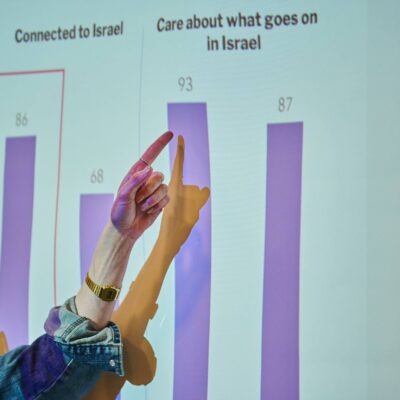Highlights from Giving USA’s Spotlight: Giving Recovery after Economic Depression
by Robert I. Evans & Avrum D. Lapin
As we begin to see some improvements in the U.S. and global economies, there remain an endless number of unanswered questions regarding philanthropy and future support for non-profits. What will the recovery be like? How will charitable giving be affected on the short term and longer term?
While it is difficult to predict the future, we can examine past and recent trends to better understand how non-profits will probably fare as the U.S. and global economies enter, and hopefully sustain, their recovery. We look to perspectives highlighted in a newly-released “white paper” from Giving USA, “Giving Recovery after Economic Depression,” researched and written at the Center on Philanthropy at Indiana University.
According to this special report, the current recession, though it has been taxing to too many and disastrous for some, has not been nearly as bad as the Great Depression, despite continuous comparisons in the media and elsewhere. The U.S. gross domestic product (GDP), corporate profits, income, and unemployment have all declined at a much lower percentage during this recession than they did during the Great Depression. While not discounting the hardships that have affected so many individuals throughout the U.S., it does give hope that the effects have not been as devastating as previously considered and that economic improvement is not as far away as once imagined.
During past recessions, individual giving has taken about three to four years to return to pre-recession figures, while foundation giving tends to take longer. Giving USA points out that there are a number of factors that might affect the speed of the recovery from this economic downturn, demonstrating a more rapid return to economic “normalcy,” including:
- a higher per capita income;
- a greater percentage of households with higher education; and
- a higher percentage of households supporting secular causes today.
These factors are our backdrop. We must also take into consideration that the stock market plays a bigger role in philanthropic giving today than in the past. Therefore, delayed or slowed growth could negatively impact giving. Similarly, if the market advances at a steady increase, it can have significant positive benefits. In addition, potential changes in governmental policies regarding charitable giving (i.e. tax changes) could also have a less favorable impact. This issue is not one that is particularly threatening, just one to consider.
While we attempt to predict future behavior, the authors caution that non-profits must be strategic and make adjustments for the next period of change. While the pace of recovery is still undetermined, we believe that it is in the near future and that non-profits must take the appropriate steps to maximize their opportunities for growth and renewal. As donors regain their faith in their financial capacities and their abilities to give at a greater charitable level, nonprofits will still be competing for resources and must illustrate their impact on their constituencies and on society.
Therefore, several critical steps are highlighted as recovery happens. Giving USA’s authors recommend at least five obvious – but critical – steps to implement immediately:
- Communication is key. Keep your donors informed about plans and make sure to communicate with them in a number of ways.
- Maintain the efforts that you have begun in the area of more effective business practices and to be more transparent in the eyes of donors, leaders and stakeholders.
- Conduct the necessary assessments to determine what paths your organization’s fundraising needs should take to ensure that efforts are effective and are consistent with your mission and your constituents’ wishes and capabilities.
- Do not underestimate the importance of continued visibility and demonstration of organizational progress.
- Integrate a formal planned giving program into fundraising efforts. This is something we have strongly recommended during this recession and we will continue to emphasize the importance of getting this conversation started with your constituents.
- Show your donors that you cherish their support, you appreciate all of their dedication during hard times, and that their continued involvement will have a transformational role on your organization as the economy shows improvement.
(To request a complimentary copy of the GUSA report, contact EHL Consulting at info@ehlconsulting.com).
Robert I. Evans, Managing Director, and Avrum D. Lapin, Director, are principals of The EHL Consulting Group, of suburban Philadelphia, and are frequent contributors to eJewishphilanthropy.com. EHL Consulting is one of 35 firms belonging to The Giving Institute, the organization that oversees the preparation and distribution of Giving USA. EHL Consulting works with dozens of non-profits on fundraising, strategic planning, and non-profit business practices. Become a fan of The EHL Consulting Group on Facebook.

 Add EJP on Google
Add EJP on Google








